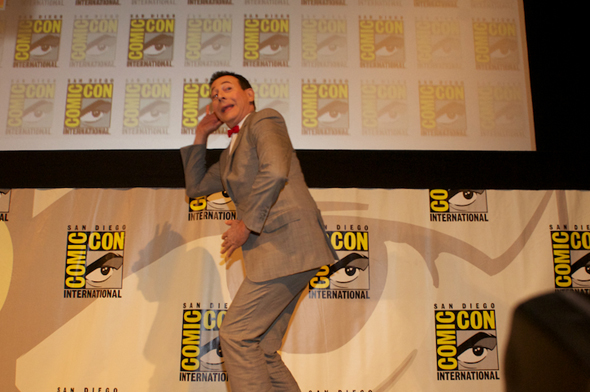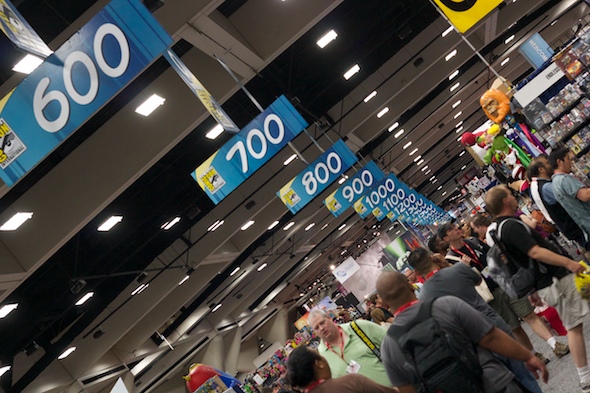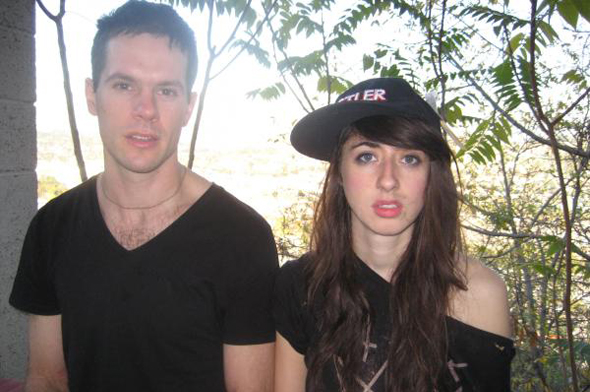
The Twilight panel had already begun, but there was no line to get into Hall H. Something seemed amiss. Continue reading…

The Twilight panel had already begun, but there was no line to get into Hall H. Something seemed amiss. Continue reading…

Comic-Con is overwhelming. As the convention slowly creeps out into surrounding hotel ballrooms, parking lots, and taco trucks, finding the right events panels can be like looking for a needle in a haystack (if that haystack was also filled with steampunk goggles, overpriced soft pretzels, and Nathan Fillion). But don’t worry –- Owl and Bear has got you covered. The following is our expertly curated list of panels both large and small at Comic-Con 2011. Continue reading…

Comic-Con is all about excess. Every year, the masses converge upon our humble city to gorge themselves on heaping servings of pop-culture goodness. And while Comic-Con spotlights all the movies, television, comics, and video games you can shake your replica Staff of Gandalf at, there’s one medium where the event always falls short: music. Continue reading…
Ah, Comic-Con. This year’s inexplicably hyphenated gathering of geeks and gawkers has come to an end, leaving San Diegans feeling hungover, used, and sore in strange places. This was my first crack at the convention, and I went (almost) all in. Continue reading…

Owl and Bear met with up-and-coming author Charles Yu, who braved 8-foot Pikachus and zombie brides at Comic-Con International 2010 to talk with us about his new book, How to Live Safely in a Science Fictional Universe (Pantheon Books), due in stores September 7, 2010.
At first blush, Charles Yu’s How to Live Safely in A Science Fictional Universe is a classic science fiction comedy complete with a sobbing, suicidal time machine operating system and an ontologically ambiguous robot dog. But surrounding the dark humor of the protagonist, a lonely repairman of chronogrammatical vehicles with temporolinguistic architecture (read: time machines), is a small, sad universe that challenges the polarity of science and art through a unique narrative “technology.â€
“I was trying to explore a fake science of storytelling,†Yu said, when asked about how his book collapses the barrier between science and language. “Reading a book itself is definitely a pretty advanced form of time travel, one we’ve had for a long time… I wasn’t so much trying to rigorously work through any kind of science about it, but just the idea that this is a really amazing technology we already have.†Continue reading…